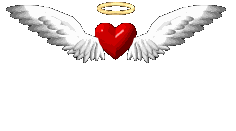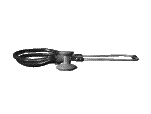

WELCOME TO
PARENTS OF CONGENITAL
HEART DEFECT/S WARRIORS & ANGELS


WHAT ARE CONGENITAL HEART DEFECT/S?

{sources sited .... #PChdWA 2013}
DEFINITION
Congenital heart disease refers to a problem with the heart's structure and function due to abnormal heart development before birth. Congenital means present at birth.
CAUSES, INCIDENCE, AND RISK FACTORS
Congenital heart disease (CHD) can describe a number of different problems affecting the heart. It is the most common type of birth defect. Congenital heart disease is responsible for more deaths in the first year of life than any other birth defects. Many of these defects need to be followed carefully. Some heal over time, others will require treatment.
Congenital heart disease is often divided into two types:
Cyanotic (blue discoloration caused by a relative lack of oxygen) and
Non-Cyanotic The following lists cover the most common of the congenital heart defects:
Cyanotic:
-
Tetralogy of Fallot
-
Transposition of the great vessels
-
Tricuspid atresia
-
Total anomalous pulmonary venous return
-
Truncus arteriosus
-
Hypoplastic left heart
-
Pulmonary atresia
-
Some forms of total anomalous pulmonary venous return
-
Ebstein's anomaly
Non-cyanotic: -
Ventricular septal defect (VSD)
-
Atrial septal defect (ASD)
-
Patent ductus arteriosus (PDA)
-
Aortic stenosis
-
Pulmonic stenosis
-
Coarctation of the aorta
-
Atrioventricular canal (endocardial cushion defect)
These problems may occur alone or together. The majority of congenital heart diseases occurs as an isolated defect and is not associated with other diseases. However, they can also be a part of various genetic and chromosomal syndromes such as Down syndrome, trisomy 13, Turner syndrome, Marfan syndrome, Noonan syndrome, and DiGeorge syndrome
Causes
No known cause can be identified for most congenital heart defects. Congenital heart diseases continue to be investigated and researched. Drugs such as retinoic acid for acne, chemicals, alcohol, and infections (such as rubella) during pregnancy can contribute to some congenital heart problems.
SYMPTOMS
Symptoms depend on the specific condition. While congenital heart disease is present at birth, the symptoms may not be immediately obvious. Defects such as coarctation of the aorta may not cause problems for many years. Other problems, such as a small ventricular septal defect (VSD), may never cause any problems, and some people with a VSD have normal physical activity and a normal life span.
SIGNS AND TESTS
Diagnostic tests depend on the specific condition.
TREATMENT
Treatment depends on the specific condition. Some congenital heart diseases can be treated with medication alone, while others require one or more surgeries.
EXPECTATIONS (PROGNOSIS)
How well a patient does depends on the specific defect.
COMPLICATIONS
Complications depend on the specific condition and treatment.
CALLING YOUR HEALTH CARE PROVIDER
Call your health care provider if you suspect that your child has a heart problem.
PREVENTION
Avoid alcohol and other drugs during pregnancy. Doctors should be made aware that a woman is pregnant before prescribing any medications for her. A blood test should be done early in the pregnancy to see if the woman is immune to rubella. If the mother is not immune, she must avoid any possible exposure to rubella and should be immunized immediately following delivery.
Poorly controlled blood sugar levels in women who have diabetes during pregnancy are also associated with a high rate of congenital heart defects during pregnancy.
Experts believe that some prescription and over-the-counter medications and street drugs used during pregnancy increase the risk of heart defects.
There may be some hereditary factors that play a role in congenital heart disease. Genetics does appear to play a role in many diseases, and multiple family members may be affected. Talk to your health care provider about screening.
Expectant mothers should receive good prenatal care. Many congenital defects can be discovered on routine ultrasound examinations performed by an obstetrician. The delivery can then be anticipated and the appropriate medical personnel (such as a pediatric cardiologist, a cardiothoracic surgeon, and a neonatologist) can be present, and ready to help as necessary. Such preparation can mean the difference between life and death for some babies.
WHAT ARE THE IMPACTS CONGENITAL HEART CHD's
{sources sited .... PChdWA 2014}
A normal heart has valves, arteries and chambers that carry the blood in a circulatory pattern: body-heart-lungs-heart-body. When all chambers and valves work correctly, the blood is pumped through the heart, to the lungs for oxygen, back the heart and out to the body for delivery of oxygen. When valves, chambers, arteries and veins are malformed, this circulation pattern can be impaired. Congenital heart defects are malformations that are present at birth. They may or may not have a disruptive effect on a person's circulatory system.
Congenital heart defects are structural problems with the heart present at birth. They result when a mishap occurs during heart development soon after conception and often before the mother is aware that she is pregnant. Defects range in severity from simple problems, such as "holes" between chambers of the heart, to very severe malformations, such as complete absence of one or more chambers or valves.
Having a congenital heart defect can also increase your risk of developing certain medical conditions.
Associated Conditions
Having a congenital heart defect can increase your risk of developing certain medical conditions:
Here are a few..
-
Pulmonary Hypertension
-
Arrhythmias
-
Infective Endocarditis
-
Anticoagulation
-
Congestive Heart Failure
Questions about Congenital Heart Defects
Are all heart problems in children congenital??
No, but most are.
There are generally three categories of possible childhood heart problems:
Structural defects, Acquired damage and Heart Rhythm disturbances. These defects are usually - but not always - diagnosed early in life. Rarely, childhood heart problems are not congenital, but heart damage may occur during childhood due to infection. This type of heart disease is called acquired; examples include Kawasaki disease and rheumatic fever. Children also can be born with or develop heart rate problems such as slow, fast, or irregular heart beats, known as "arrhythmias".
Who is at risk to have a child with a congenital heart defect??
Anyone can have a child with a congenital heart defect. Out of 1,000 births, nine babies will have some form of congenital heart disorder, most of which are mild. If you or other family members have already had a baby with a heart defect, your risk of having a baby with heart disease may be higher.
Why do congenital heart defects occur?
Most of the time we do not know. Although the reason defects occur is presumed to be genetic, only a few genes have been discovered that have been linked to the presence of heart defects. Rarely the ingestion of some drugs and the occurrence of some infections during pregnancy can cause defects.
How can I tell if my baby or child has a congenital heart defect?
Severe heart disease generally becomes evident during the first few months after birth. Some babies are blue or have very low blood pressure shortly after birth. Other defects cause breathing difficulties, feeding problems, or poor weight gain. Minor defects are most often diagnosed on a routine medical check up. Minor defects rarely cause symptoms. While most heart murmurs in children are normal, some may be due to defects.
How well can people with congenital heart defects function?
Virtually all children with simple defects survive into adulthood. Although exercise capacity may be limited, most people lead normal or nearly normal lives. For more complex lesions, limitations are common. Some children with congenital heart disease have developmental delay or other learning difficulties.
What is the social/financial impact of congenital heart defects??
Successful treatment requires highly specialized care. Severe congenital heart disease requires extensive financial resources both in and out of the hospital. Children with developmental delay also require community and school-based resources to achieve optimum functioning.
What is the impact of congenital heart disease on families??
The presence of a serious congenital heart defect often results in an enormous emotional and financial strain on young families at a very vulnerable time. Patient/family education is an important part of successful coping.

ADULT CHDers




WE ARE STARTING TO SEE THE RESULTS OF RESEARCH …..
There are now more adults (approximately 1.4 million) living with CHD than children. It is because of the advances of awareness, research and treatment of CHD’s that this has been able to occur. Another reason which probably better said first is .... The courage, determination, and the fighting spirit that the children, adult’s and their families continue to have through their journey is just amazing.
THERE IS MORE WORK TO BE DONE TO CONTINUE THE PROGRESS
We still have so much more work that needs to be done. About 10% of adults are receiving the recommended care.
WHY
* The thinking is that once a child goes through corrective surgery (not all CHD's require surgery and or surgery right away) that somehow the child is fixed. This is where it gets tricky. Yes, surgery,( many sometimes), will allow it to become in a more functional adaptable state compared to pre-surgery condition.
*But, It’s important to realize that there is no cure for CHD’s. A child who is born with a Heart Defect means that they are born with something structurally wrong with the heart. Their heart is not normal.
*This is the reason why children that are growing into adults need to continue their specialized care. Things can still go wrong from time to time because of wear and tear and illness.
*Adult’s & Children need to be seen and followed by a Doctor who specializes in Congenital Heart Defect/s.
* It is because of the technology and research that has been done we are seeing the numbers of survivors increase. As a result the demand for specialist’s is growing rapidly. We need more specialized doctors and facilities to keep fostering the progress.
IF YOU ARE A TEEN /ADULT WITH
CONGENITAL HEART DEFECT/S HERE ARE A FEW SUGGESTIONS
{sources sited ....
*HEALTHY CHD
*PEDIATRIC CONGENITAL HEART ASSOCIATION }
KEY INTO THE SITES BELOW TO HELP GUIDE IN YOUR CARE !
IS THERE SOMETHING WE CAN DO .... Yes!
Become CHD Aware! Educate ... Awareness ...Research
ARE YOU EXPECTING & OR DO YOU KNOW SOMEONE EXPECTING.....HERE ARE SOME QUESTIONS TO ASK YOUR DOCTOR ABOUT YOUR BABY..!

clipart sources sited ....
Chldrens Health Care of Atlanta Hospital
AFTER THE BABY IS BORN ASK FOR A PULSE OX TEST BE PERFORMED ...24hrs AFTER BIRTH (no pain involved) .... MAKE SURE THE TEST IS DONE BY A CHD DOCTOR / NURSE !

clipart sources sited
www.InThisWonderfulLife.com/
Taking a Baby's PULSE OX will look something similar to this! Placement should be on the toe.

Clipart picture from and more about Pulse Ox key into
CHD TYPES

clipart sources sited
#lt4xtreme & #2T4CHD

clipart sources sited
PChdWA
CHD SYMPTOMS ... INFANTS / CHILDREN / ADULTS

clipart sources sited #2T4CHD
information on symptoms
*Mended Little Hearts
*Mayo Clinic
Remember that if you suspect a loved one has a CHD it's important that the Infant / Child / Adult see's a Congenital Heart Defect/s Specialist (A Doctor who specialize's in CHD care).
* Infants / Children ..... Pediatric Cardiologist Specializing in CHD care
* Adults ..... CHD Cardiologist / Pediatric Cardiologist
.png)
clipart sources sited #2T4CHD

SPECIAL NEED'S / HEART DISORDERS, DISEASES ACRONYMS & ABBREVIATIONS
PChdWA ACRONYMS & ABBREVIATIONS
For us Parents/Caretakers/Grandparents/Extended Family & Friends in the Special Needs World we are often forced to learn a second language ....."Medial Jargon (abbreviations/ acronyms)." Most folks would agree that it can be quite overwhelming to say the least especially for the Newbies. Once we become fluent in Medical Jargon we sometimes forget that not everyone knows our language.
*Below is a list of websites that contain
Special Need's & CHD abbreviations / acronyms.
RUN FOR LITTLE HEARTS
{CHD BABIES (Glossary of Common Terms)}
RUSH UNIVERSITY MEDICAL CENTER
KIDS HEALTH FROM NEMOURS
also has health topics for parents /teens /eduators
MEDICAL ABBREVIATIONS
BIOLOGY PREFIXES
a prefix dictionary for Biology & Medicine


.jpg)




